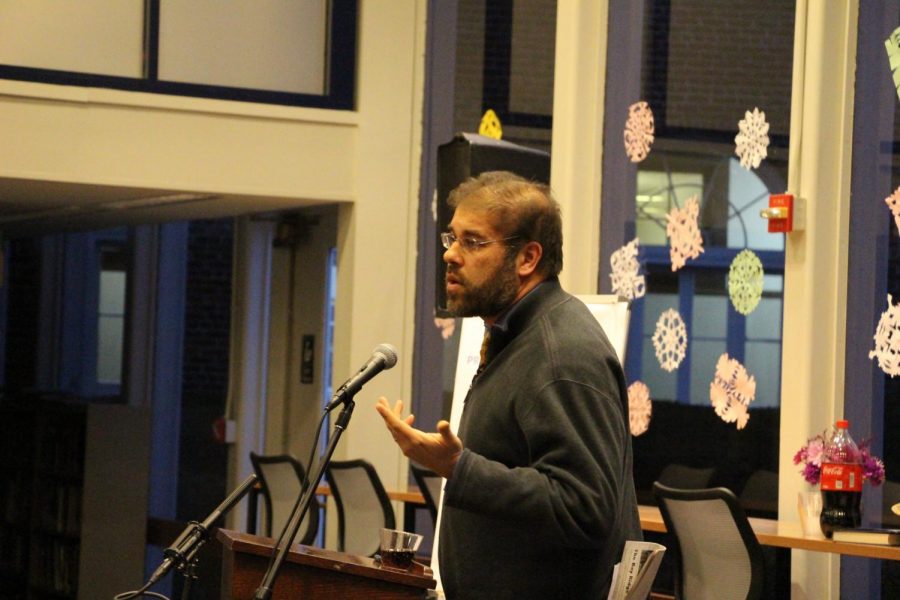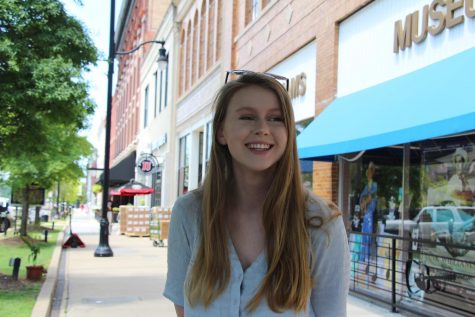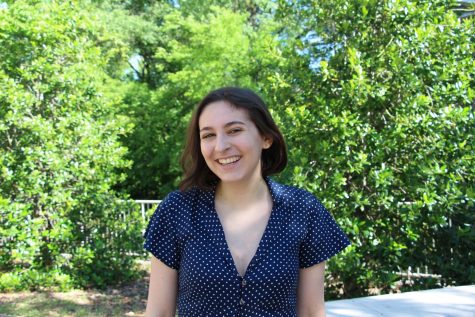Professor Jeremi Suri Speaks About New Book, “The Impossible Presidency”
Professor Suri spoke to students on January 28.
March 8, 2018
On the evening of Monday, January 28, the students in the AP United States Government class as well as members of the Bay Ridge community attended a talk given by Professor Jeremi Suri of University of Texas at Austin. The talk, which was coordinated by Poly’s History Department, is the first installation in the lecture series called Context Conversations at Poly Prep. Suri is renowned for his political science writing, specifically his recent book, The Impossible Presidency. All students in the AP Government class read the book in the week leading up to Suri’s talk.
Suri, a native New Yorker who attended Stuyvesant High School, is a professor in the History Department and the Lyndon B. Johnson School of Public Affairs. He specializes in international affairs, diplomacy and international relations. In 2001, Suri was awarded the prize for best dissertation in the humanities at Yale University. His dissertation focused on cultural revolution and détente among the great powers during the 1960s. Suri once described himself as “a historian who uses historical analysis to try to help to improve contemporary policy making.”
The Impossible Presidency, written in September 2017, addresses the historical precedents that led up to the current state of the presidency. Currently, Congress is constantly gridlocked, and the president is a crisis manager who only addresses short-term issues. Suri, as the child of immigrants from India and Russia, became interested in history because he was “fascinated by how people’s pasts influence their lives.”
When asked what prompted him to write his book, Suri said that his interest in leadership made him want to closely examine the role of the presidency.
“This book grew out of research I had done for other books and projects on political leadership and how leadership has changed over time,” Suri said. “We can learn from the history of leaders as we hope to improve the leadership in our world.”
Before his talk, Suri was welcomed by Chair of the History Department Michal Hershkovitz. Hershkovitz hosted a small discussion session with a select group of students.
“I met with him for a short period before his talk, and I found him surprisingly easy to talk to,” said senior Kayla Williams. “I think that his down-to-earth and humble nature carried through into his talk and made him extremely engaging.”
Hershkovitz began the talk by addressing the students, faculty, and Bay Ridge community members in the audience.
“If you are the future,” Hershkovitz said. “We are in better hands than we have been in the past.”
Suri began by thanking parents and educators for training the next generation of leaders. He thanked Hershkovitz personally and spoke fondly of her idealism, saying, “We all need to remember our ideals these days, we live in a world that needs our idealism more than ever before.”
“I wrote this book, and in many ways I became a historian,” Suri said. “One of the most important lessons we can learn is the lesson of change.”
He warned students not to romanticize the history of the presidency or view past presidents as “great men.”
During his talk, Suri closely followed the format of The Impossible Presidency, describing the most influential presidents and the impacts that they have had on the executive office.
Suri stated that the president’s role has remained rather stagnant since 1789, when George Washington assumed the role of the presidency. “We think of CEOs differently than we did 20 years ago, but we think of the president the same way we did 20 years ago,” Suri said.
Suri then opened up the floor to questions. Many AP Government students pre-wrote questions, which Suri picked out of a hat.
“I thought Suri was one of the most eloquent speakers I’ve heard,” said senior Alejandra Sanchez. “I was really interested in what he had to say about how we should think about history. We must not get stuck in the past, but rather figure out how we can learn from it and apply it to the future.”
“I appreciated that in the midst of his critiques of our often inefficient government, he often managed to instill a sense of hope and optimism in his teenage audience,” agreed senior Lotoya Francis. “He assured us that he is confident in our generation’s ability to impact the future of the nation and more specifically, to reverse the path of the downward spiraling and increasingly powerful presidency.”



























